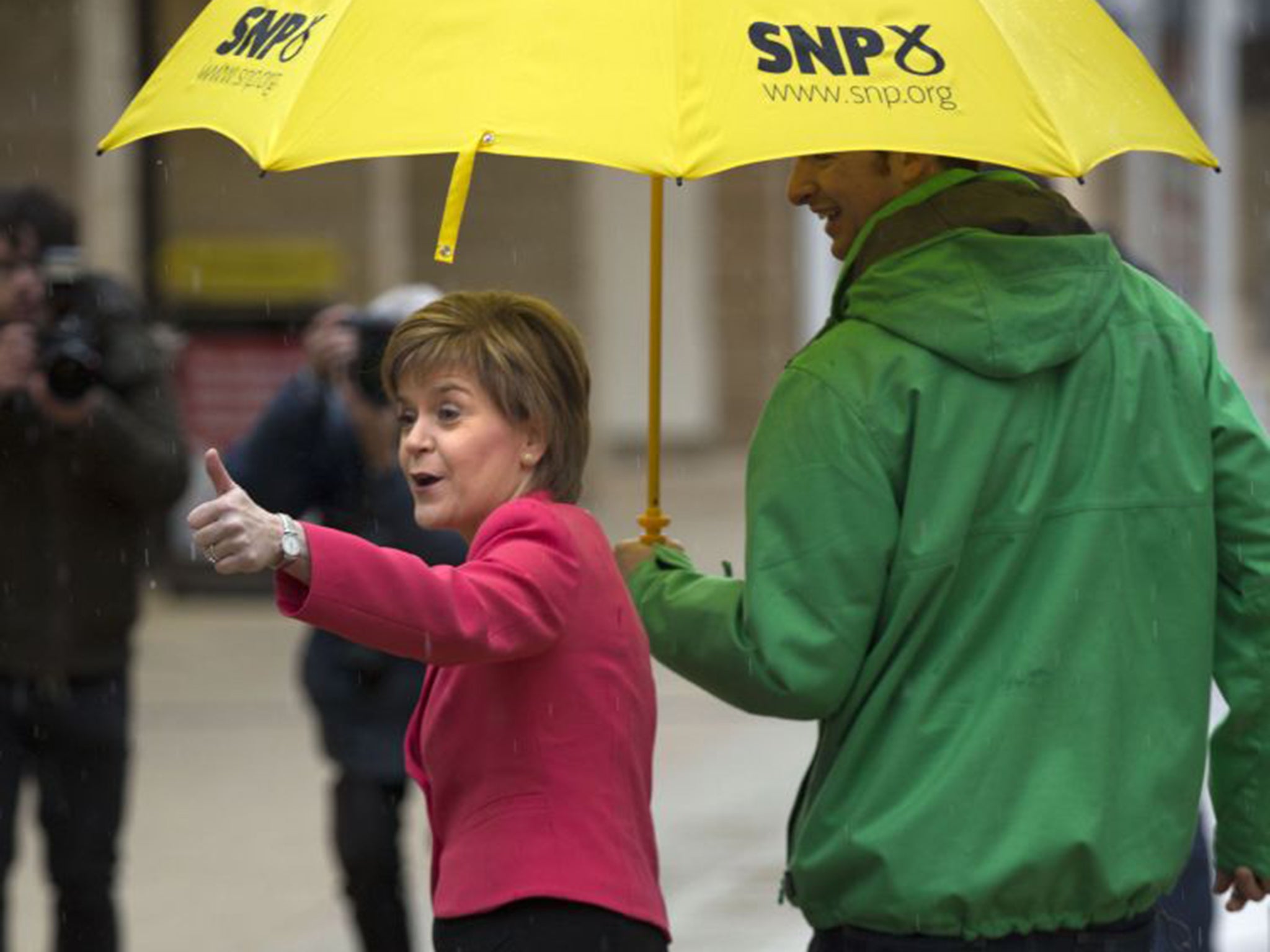Nicola Sturgeon’s swift reaction to MP rule-breaking shows why she is more popular than Boris Johnson
The first minister of Scotland’s response to Margaret Ferrier travelling across the country while infected with coronavirus is why she gets more credit, writes John Rentoul


Many people have wondered how the first minister of Scotland has remained so popular during the coronavirus crisis, while the prime minister of the UK has seen the opinion polls turn against him – even though they have pursued essentially the same policies.
Nicola Sturgeon’s swift reaction to the “dangerous and indefensible” actions of Margaret Ferrier, the Scottish National Party MP, illuminates a large part of the explanation. Sturgeon told Ferrier she should stand down as an MP, while explaining that she had no power to force her to do so.
Sturgeon had been similarly decisive with Catherine Calderwood, the chief medical officer for Scotland, whom she did have the power to sack. Calderwood resigned in April after breaking her own advice by visiting her second home with her family.
In both cases, the contrast was striking with Boris Johnson’s response to the breach of lockdown rules by Dominic Cummings, his chief adviser, when it became known in May. Cummings argued with some skill in a news conference in the Downing Street garden that he had not in fact broken the rules, but like the suspect in an Hercule Poirot denouement he gave himself away on another charge.
At the start of his elaborate narrative of how he came to drive from London to Durham to isolate himself and his family, Cummings admitted he had gone home to look after his wife, who was showing coronavirus symptoms – and then returned to his office in 10 Downing Street, in direct contravention of the rules, before fleeing to Durham that evening.
Johnson’s response to all this was to say that he had satisfied himself that Cummings had done everything by the book, and that he now wanted to talk about something else.
At a time when public opinion was overwhelmingly of the opinion that Cummings ought to be sacked, and that his behaviour was a classic of the “one rule for them, another rule for the rest of us” genre, this was evidence of commendable loyalty, bull-headed stubbornness or self-destructive poor judgement on Johnson’s part, and possibly all three.
As it happened, the consequences for Johnson and the Conservative Party in the court of public opinion were not as immediately dire as I thought they would be, but it was a slow burn. The prime minister, initially given the benefit of the doubt by virtue of his position as leader of the nation, was increasingly doubted. The credibility of the government in asking people to do difficult things and to make sacrifices for the common good was undermined.
It didn’t help that Johnson could not, this week, even remember the simple extra measures imposed in the northeast when he knew journalists would ask him about them after his speech in Exeter. Sturgeon would not have made a mistake like that; and she would not have tolerated a mistake like Cummings’ if it had been made by one of her advisers.
“One rule for them” is an immensely powerful sentiment in politics. That is why Jeremy Corbyn’s dinner for nine was on the front page of a newspaper this week – despite the persistent complaint that the rules are too complicated, the rule of six is pretty simple and everyone can see at a glance that Corbyn broke it. He may be a lockdown sceptic, like his brother, but unlike his brother he is an MP, responsible for making the laws in this country, and so is under a particular obligation to abide by them.
Some people might think that Ferrier’s series of errors is just what all politicians are like, but most voters are prepared to decide that some politicians are less hypocritical than others. Conversely, there is a small group of voters who think that Sturgeon can do no wrong – probably a larger group in relation to the population of Scotland than the equivalent Boris fandom across the UK – but in Scotland, as in the UK, most voters are in the middle and willing to give politicians credit if they respond to wrongdoing by those around them promptly and clearly. Sturgeon gets that credit; Johnson has forfeited it.
Join our commenting forum
Join thought-provoking conversations, follow other Independent readers and see their replies
Comments


Bookmark popover
Removed from bookmarks